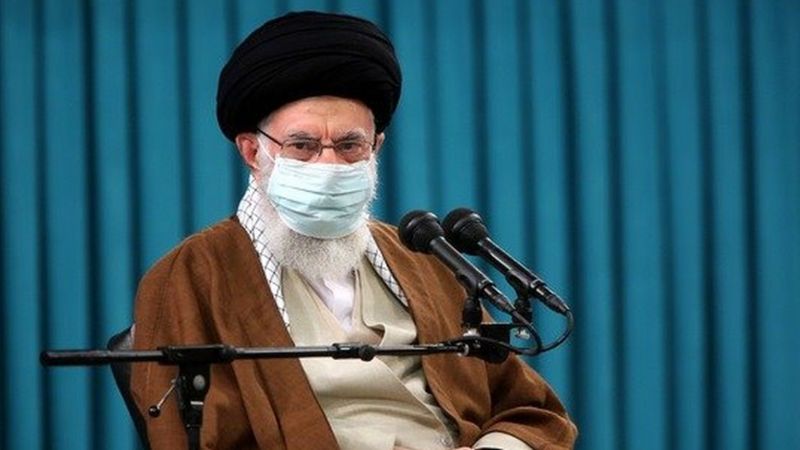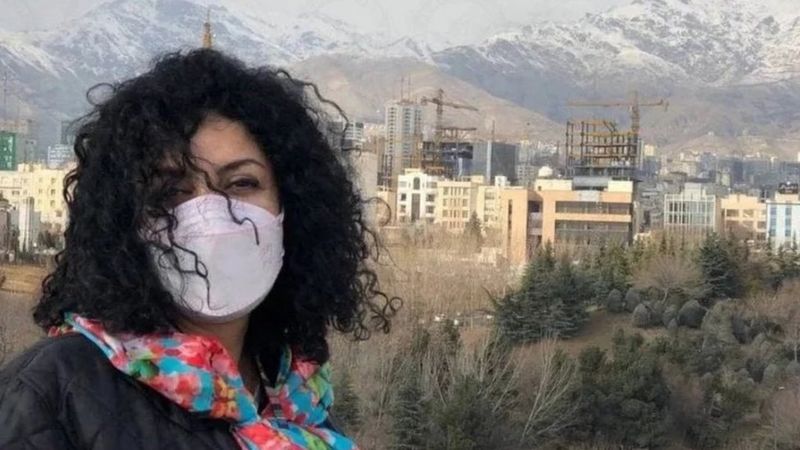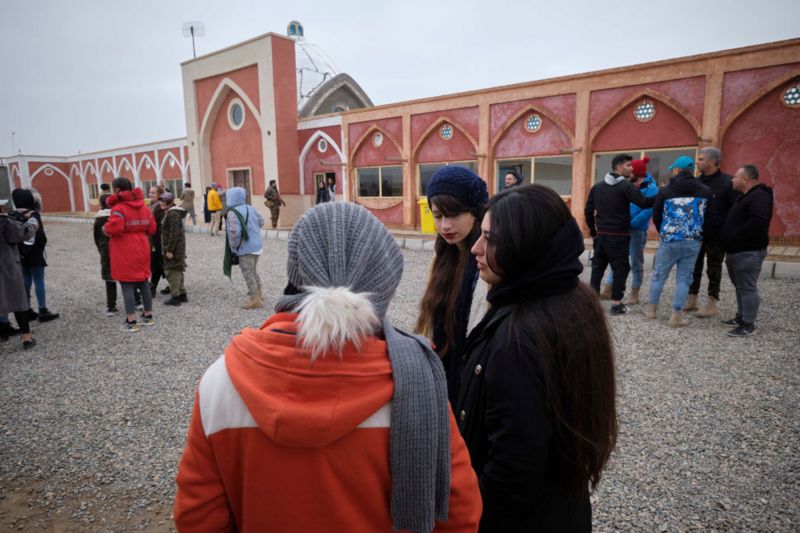
Investment Risk in Iran
The editorial of Jahan Sanat focuses on the risks of investing in Iran, underlining that the country’s economy is suffering hugely from a lack of investment.
Investment risk in Iran, according to credible international institutes, is still very high. The level of hopelessness, concern, and stress in society is high, which has resulted in brain drain and capital flight.
According to official reports, the rate of investment in spring was minus 5.3 percent. If inflation continues to rise at the same rate, it will pose a threat to Iranian households and society as a whole. Due to the failure to ratify the FATF bills, the cost of transactions has increased, meaning that Iranians pay 17 percent more. The government has not earned much currency revenues from selling oil, and it has no other way but to borrow from the Central Bank which results in increasing liquidity levels. As such, the government’s treasury will be empty after a while because of giving subsidies.
Inflation in Iran is six times more than Iraq, 9.4 times more than Pakistan, and 2.2 times more than Turkey. The significant drop in the industrial production index in the first month of autumn shows a decrease in demand and a drop in the level of raw materials.
Fuel subsidies might enhance popular support, but as time goes by, it will do nothing but weaken the economy and lead to further inequality.
During the past few years, Tehran’s Chamber of Commerce took measures to establish a fund for the Iranian private sector overseas, but due to sanctions, these have been to no avail. Because of the sanctions, foreign banks are not ready to cooperate with Iranian banks.
The current issue these days is the energy crisis and the problems afflicting the country’s industries. Iran is the only country in the world which had negative growth in 2019.
Tehran’s Chamber of Commerce held meetings with Afghani investors in an attempt to prepare the ground for them to enter the Iranian market. At the preliminary stage, about 40 Afghan investors were identified and negotiations with them started. But because of the Iranian government’s strict rules regarding visas for investors, half of them changed their minds about investing in Iran and went to other countries.
Government Should Not Make Promises to People
The editorial of Arman Melli, penned by former lawmaker Gholamali Jafarzadeh Imenabadi, emphasizes that instead of making promises to people, Ebrahim Raisi’s government must work hard and show people that they are after getting things done.
The Iranian people know of the problems that exist. In other words, they are aware of the seriousness of the issues and problems due to US sanctions, mismanagement, etc. So, they do not want government officials to make promises to them. Rather, they expect them to be hardworking, honest, and not corrupt. What people do not expect to hear about anymore is that there are more cases of corruption and embezzlement.
But it is not clear why Ebrahim Raisi’s government insists on making promises to people. It seems that if they make an effort and work hard enough, there is hope for resolving the problems to some extent. People themselves are witnessing the efforts that are being made. In the meantime, people expect that government officials should not receive astronomical salaries.
What is more, people believe that the Parliament does not support the Iranian people as all the bills passed are detrimental to the public. The Parliament must grant and protect citizens’ legal rights, but instead it puts legal restrictions on people and gets involved in issues that are not a priority for people.
Now, the Iranian people have high expectations of Ebrahim Raisi, and they expect government officials to be hardworking and dedicated. But continuing to make promises is a mistake. One of the problems in Iran is making promises. With the high rate of inflation, the volume of liquidity, debilitating sanctions, the inability to export oil, and the FATF blacklisting, they cannot promise people that the situation will get better. They should rather work hard to show that they are making progress.
Raisi’s government should not make promises, but should rather apprise people about what is going on in a transparent manner. Moreover, it must be mentioned that the ministers have not performed well so far.
The Same Officials, the Same Flawed Decisions
The editorial of Aftab Yazd is critical of the closed circle of power in Iran, arguing that it not only results in the same flawed decision-making, but it also makes people distrustful of the Iranian authorities.
It is “bad” that for years the same officials have been decision-makers and “worse” than that is that these figures mostly hold weak, ambiguous records.
This issue needs to be analyzed and it is certainly not a factional or politicized issue. Rather, it brings up the question of why the circle of power is so closed and narrow that these individuals become ministers and lawmakers again and again, despite their costly, damaging performances.
Has there been any analysis of how this issue affects public trust? Has the impact of people’s negative views towards Iranian politicians been determined?
Let us look at an example. Everybody knows about the protests in November 2019. Why did such a thing happen? What role did public disillusionment and government incompetence play in all those incidents? These two factors played a considerable role in starting the crisis. This is because society does not care about what these longstanding officials say, while the rise in the fuel price which caused the eruption of protests was implemented negligently and imprudently.
Now the question is: will Ebrahim Raisi’s government increase the fuel price in the next four to eight years? Given the country’s economic conditions, the government sooner or later has to increase prices to pay for its expenses. Now, in light of increasing public distrust and Iran’s continued subjection to the same flawed decisions by the same officials, who can guarantee that the bloody incidents of November 2019 will not be repeated?
The solution is clear: the circle of power must be inclusive of highly qualified and dynamic figures, and nepotism must stop. It is very important to appoint competent young experts with scientific backgrounds, instead of officials’ sons and sons-in-law.
No Clear Prospects for JCPOA Talks
The editorial of Setareh Sobh reviews the obstacles ahead of the nuclear talks which will be soon revived under Ebrahim Raisi’s government, emphasizing that in light of the existing difficulties, there is no clear future for these talks.
As we get closer to November 29 when the talks for reviving the nuclear deal (JCPOA) will be resumed, senior Iranian officials and the other parties to the deal have increased consultations about the JCPOA. In this context, during a phone call between Ebrahim Raisi and Vladimir Putin, both underlined the lifting of sanctions and the return of Iran and America to their obligations under the JCPOA.
But statements and consultations during recent weeks and days do not point to clear prospects regarding the resumption of the nuclear talks. The question is: will the talks be a continuation of the previous negotiations or does Iran intend to start from the scratch? What mechanisms would Iran and America like to adopt for lifting sanctions and ensuring Iran’s return to its main obligations? There is also a lot of ambiguity about the possibility of lifting all the sanctions. Can the Biden administration guarantee that it will not pull out of the JCPOA once again? What will be the role of Europe in lifting the sanctions and ensuring Iran’s return to its nuclear obligations?
If Iran wants to start the talks all over again, the negotiations will not come to fruition. Furthermore, certain changes are going to take place in America and the European countries in the upcoming months. In May 2022, there will be a presidential election in France, while we will see the transition of power in Germany, along with the congressional election in America next year. All these upcoming developments indicate that the Biden administration, France and Germany are not willing to start the negotiations from scratch.
Iran’s current stance reflects its intention to seek concessions and strengthen its negotiating position before the resumption of the nuclear talks. But if the Iranian government remains inflexible towards reaching a compromise over the lifting of sanctions, the prospects for the JCPOA negotiations will not be bright, rendering the failure of the talks an inevitability.
This will have a dire impact on people’s lives and Iran’s grave economic situation, because Iran’s economy is tied to the JCPOA and the ratification of the FATF bills.

Khamenei: Encouraging Young Elites to Migrate From Iran Is “Treason”

While statistics show a continuous upsurge in the migration rate from Iran, Iranian Supreme Leader Ali Khamenei in his speech described encouraging youths to migrate from Iran as “treason.”
The Iranian Supreme Leader stated that there are certain “elements” in universities who encourage young elites to leave the country, “let me say it clearly that this is treason, this is enmity against the country, and this isn’t friendship with that friend either.”
Khamenei was delivering his speech to a group of “young elites and scientific talents.”
After the revolution in Iran in 1979, the rate of migration from the country has always been on the rise, but reports show a considerable increase in migration in recent years. Among those who migrate from Iran, there are many experts from different scientific fields.
Political and social restrictions, the lack of freedom in scientific and professional fields, volatile economic prospects, and uncertainty about the future have resulted in the loss of hope for meaningful reform in Iran, which in turn has led to an increase in migration from the country.
The Parliament’s Education Commission had previously announced that 900 university professors had migrated from Iran in 2019.
Iranian citizens are strongly critical of the fact that government positions are given to a small group of people who are approved by the Iranian government but typically lack the requisite expertise or education.
Government mismanagement has caused many problems and crises in Iran including the water crisis, inflation, unemployment, and rampant financial corruption, so much so that almost every day protests are held against deteriorating living standards.
The Iranian government’s failure in confronting the coronavirus outbreak and the delay in vaccinating citizens for several months against the virus is cited as another sign of mismanagement.
Along with mismanagement and multiple crises, there is also the issue of how the Iranian government violently suppresses peaceful public protests.
For instance, in November 2019, many people took to the streets to protest against the sudden increase in fuel prices, but they were brutally suppressed and many were killed by security forces.
Protests Against Water Scarcity Continue

For the second week, farmers in the city of Isfahan have protested against the drying up of the Zayandeh Rud, the main river of the city. These protests drew widespread public support.
According to video footage released on social media, a large number of people assembled along with several Isfahani farmers on the dried-up riverbed of Zayandeh Rud.
“Where is my Zayandeh Rud?”, “Zayandeh Rud’s flow is our absolute right!” and “Give back Zayandeh Rud to us, Let Isfahan breathe!” were some of the slogans chanted by protesters.
A number of protesters set up tents on Zayandeh Rud’s riverbed and stayed there.
In recent years, the issue of distributing water in Isfahan has triggered extensive protests by farmers in different regions.
Zayandeh Rud, which is more than 400 kilometers long, has changed into a seasonal river in recent decades because of the decline in precipitation, continuous drought, the upsurge in the population, the diversion of water to industries, etc.
In the meantime, the city of Shahr-e Kord in Chaharmahal and Bakhtiari Province also witnessed popular protests against projects to divert this province’s water. People have objected to the mismanagement of water resources in this province as the authorities divert water from this province to other provinces to be used in industrial projects.
During the protests in different cities of Iran against the shortage of water, people chanted slogans against the Iranian authorities, calling for the resignation of “incompetent managers.”
In recent months, Iranian officials have repeatedly blamed the water crisis on the decrease in precipitation in 2020, but experts consider mismanagement as the main cause of the water crisis, while pointing to “water bankruptcy” in the country.
Following the water crisis in many regions in Iran including Khuzestan Province which made access to drinking water very difficult for citizens and created many problems for farmers and pastoralists, there were widespread nightly protests in many cities in Khuzestan earlier this summer.
The nightly protests first started in the eastern cities of Khuzestan and then spread to other cities and provinces.
International Calls for Releasing Human Rights Activist Narges Mohammadi

Amnesty International, Norway’s Pen International, the French Foreign Ministry, the Human Rights Defenders’ Center, and the Defenders of Human Rights in Iran, in separate statements, condemned the re-arrest of Narges Mohammadi who is at risk of being subjected to 80 lashes.
Earlier this year, human rights activist Narges Mohammadi was sentenced to 30 months of imprisonment and 80 lashes on charges of “propaganda activity against the Iranian republic, holding a sit-in while in prison, disobeying prison officials, then the connection was cut.”
Narges Mohammadi, who was released last year after five years of imprisonment, was arrested once again last week by security forces while she was taking part in a public gathering on the death anniversary of one of the victims of the violent crackdown in November 2019. Mohammadi has been one of the most outspoken critics of the Iranian government.
In a statement, Amnesty International has demanded that Iranian authorities should “immediately and unconditionally” release Narges Mohammadi, repeal her “unfair sentence,” and guarantee that she will be protected from “any torture or mistreatment including lashing.”
Amnesty International declared in its statement that arresting a human rights activist for demanding truth and justice on the second anniversary of the November 2019 protests – in which hundreds of men, women, and children were killed by Iranian security forces – is a brutal measure and another sign of the systematic impunity in Iran for measures that are considered criminal according to international law.
Amnesty International has asked the international community including the UN and the EU to discuss Narges Mohammadi’s case with the Iranian authorities and focus on the violent suppression of human rights defenders in Iran.
The French Foreign Ministry also condemned the arrest of Narges Mohammadi, calling for her immediate release. Taghi Rahmani, Narges’ husband and their twin children live in France. In a tweet, Taghi Rahmani announced that his wife Narges had made contact from prison, saying that the sentence of 30 months of imprisonment and 80 lashes had been handed down to her in the prison.
Concerns About the Bankruptcy of Certain Tourism Sectors

Worries about the decline in the Iranian tourism industry continue and the Iranian authorities, including the minister in charge of this industry, have underscored the problems in this industry – problems which have resulted in bankruptcy in certain sectors related to tourism.
In his latest remarks, Minister of Cultural Heritage and Tourism Ezatollah Zarghami said that tourism is in a poor condition and “needs a shock to be revived.”
In a meeting with Zarghami, representatives of Iran’s Chamber of Commerce offered disappointing statistics and a dire outlook in this regard.
Gholam Hossein Shafei, head of Iran’s Chamber of Commerce, said that because of inattention to the capacities of the tourism industry, along with the problems caused by US sanctions and COVID-19, many tourism industry players are on the verge of bankruptcy.
Referring to a report by the Global Council for Travel and Tourism, Shafei highlighted that tourism’s share in Iran’s economy is 4.2 percent, which is “very much lower” than many countries in the region.
The share of the tourism industry in employment in Iran is estimated at about 6.5 percent.
According to the Tourism Commission in Iran’s Chamber of Commerce, each foreign tourist is estimated to bring about $1,000 to Iran.
In recent years, by attracting foreign tourists, Iran has tried to partially make up for the loss of forex revenue due to US sanctions, including taking measures like unilaterally revoking visa requirements for certain countries like China.
In the past two years, because of global issues like coronavirus, tourism conditions in Iran have worsened. After the coronavirus outbreak, the tourism industry was hit hard, many hotels were closed, and tour guides lost their jobs.
According to official statistics, during 2019 and 2021, the hotel sector lost more 28,000 billion tomans and more than 21,000 people have lost their jobs in this sector.
Travel agencies in Iran have suffered the greatest financial decline after hotels due to the coronavirus pandemic, recording a loss of more than 1,000 billion tomans and with more than 6,000 people losing their jobs.
